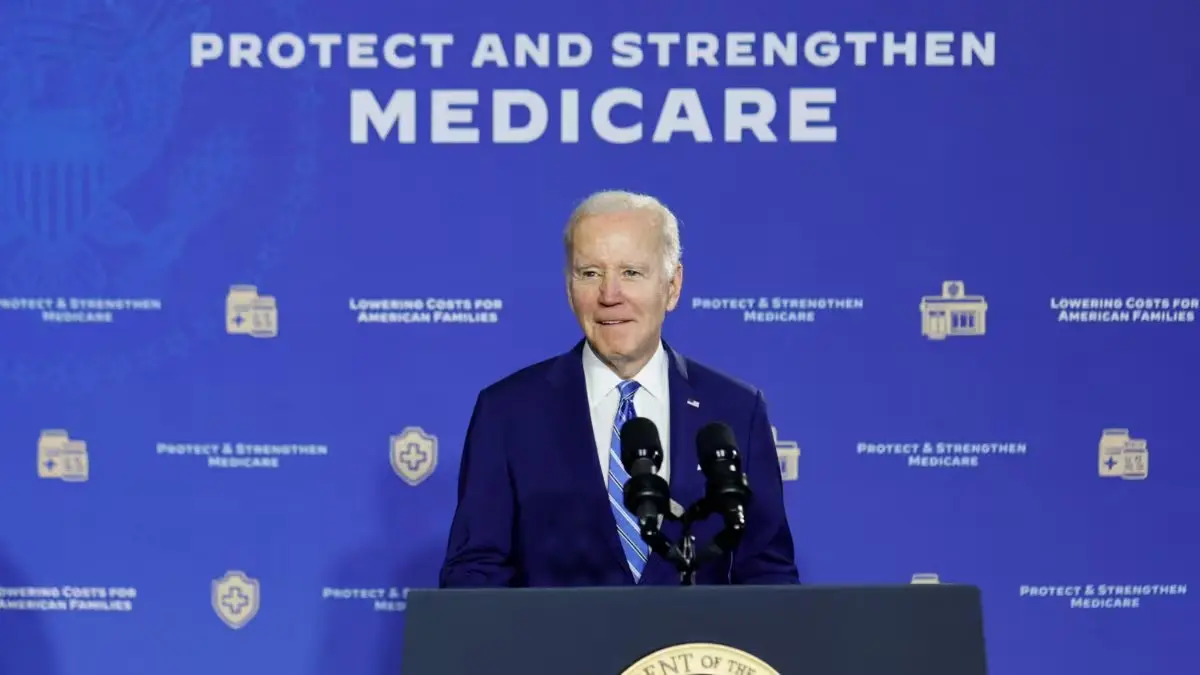Big Pharma, Medicare, Insulin, Essential Medication, Life-Saving Insulin, Drugs price control, prescription drugs, diabetes, cancer, and heart disease, costs of prescription drugs, United States, USA, US.

The Biden administration has taken a significant step towards reducing the soaring costs of prescription drugs in the United States. On Tuesday, the White House released a list of the first 10 prescription drugs that Medicare will be able to negotiate lower prices for. This list includes medications used to treat diabetes, cancer, and heart disease. Surprisingly, the Biden administration also added some insulin products to the list, which is a welcome surprise for many.
The 10 expensive medications targeted by Medicare to lower prices are:
- Eliquis (apixaban)
- Xarelto (rivaroxaban)
- Januvia (sitagliptin)
- Jardiance (empagliflozin)
- Enbrel (etanercept)
- Imbruvica (ibrutinib)
- Farxiga (dapagliflozin)
- Entresto (sacubitril/valsartan)
- Stelara (ustekinumab)
- Fiasp (insulin aspart)
- NovoLog (insulin aspart)
These drugs are used to treat a variety of conditions, including blood clots, diabetes, heart failure, rheumatoid arthritis, and cancer. They are some of the most expensive drugs covered by Medicare, and the Biden administration is hoping that negotiating prices directly with manufacturers will help to lower costs for seniors.
The Medicare Part D prescription drug program covers millions of Americans, and the cost of prescription drugs has been a growing concern for many years. The Biden administration has made it a priority to lower prescription drug prices, and this move to negotiate prices directly with manufacturers is a significant step forward.
The White House estimates that these price negotiations could lead to savings of around $100 billion over the next decade. This move is seen as a major blow to Big Pharma, which has been fighting against the plan in courts. There have been at least eight lawsuits since the passage of the inflation reduction act last year, which gave Medicare the authority to negotiate drug prices.
President Biden spoke out against Big Pharma, accusing them of charging Americans more than three times what they charge other countries. He called this practice outrageous and emphasized the importance of these negotiations in reducing drug costs for millions of Americans.
The prices negotiated by the Health and Human Services (HHS) department will be published by September 2024, and the new prices will go into effect in January 2026. Independent Senator Bernie Sanders of Vermont responded to the news by stating that much more needs to be done to stop Big Pharma from charging higher prices in the United States. He highlighted the example of a diabetes drug made by Merck, which costs $547 a month in the U.S. but only $16 in France.
Peter Maybarduk, the director of Public Citizen’s Access to Medicines Program, commented on the significance of this announcement. He explained that it has taken a long time for Medicare to have the ability to negotiate drug prices, and this has been a corrupt deal since the creation of the Medicare prescription drug benefit almost 20 years ago. Maybarduk emphasized that negotiating drug prices is a basic right that our government should have, as many other countries already do. He also mentioned that the inclusion of insulin products is a welcome surprise, as 1.3 million Americans ration insulin.
Maybarduk addressed the limited number of drugs in the first batch that will be negotiated, explaining that there is a statutory mandate to begin with 10 drugs. However, 15 more drugs will be added in the following year, and another 15 drugs in the year after that. He acknowledged that the impact will grow substantially over time, but it would have been preferable to have more drugs included in the initial legislation.
Regarding the timeline, Maybarduk explained that the prices will take effect on January 1, 2026. There will be an exchange of information this fall, followed by negotiations between CMS and patient groups in February. The Inflation Reduction Act is already having positive impacts on drug prices beyond the negotiation provisions, as there are measures to curb price spikes and penalize companies for taking price spikes.
Maybarduk addressed the criticism from Republicans, who claim that these provisions discourage investment in life-saving cures. He argued that this is not the case and that the American people support pharmaceutical research and development through taxpayer subsidies and grants. He also emphasized that prices are not related to research and development costs, but rather to what the companies can charge before the blowback becomes unsustainable.
The blog post also discussed the enormous marketing efforts of the pharmaceutical industry to push drugs on the American people. Maybarduk agreed that it is out of control and expressed hope that processes like the Inflation Reduction Act can bring more transparency and rationality to drug pricing.
In conclusion, the Biden administration’s announcement of the first 10 prescription drugs that Medicare can negotiate lower prices for is a significant step towards reducing the costs of prescription drugs in the United States. While there is still more work to be done, this move is seen as a major blow to Big Pharma and a positive development for millions of Americans who struggle with high drug prices.